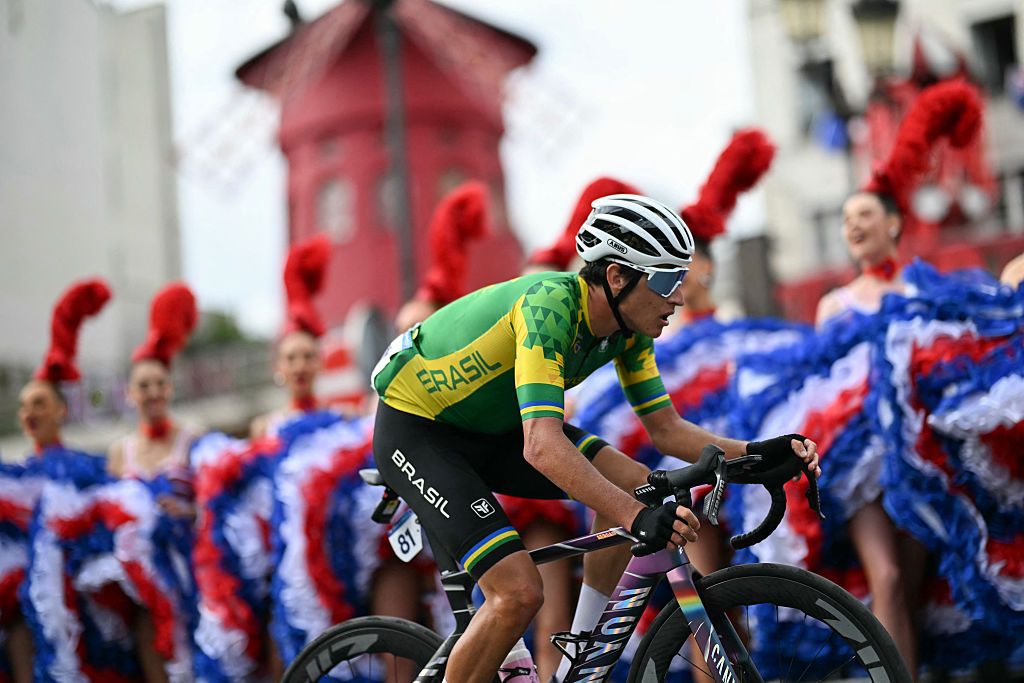
The UCI announced on Tuesday the suspension of Brazil's Vinicius Rangel Costa, 24, due to failures to report his whereabouts for anti-doping controls.
Rangel, who raced with the Movistar team from 2022 to 2024, last competed at a sanctioned event in 2024 when he represented Brazil in the men's road race at the Summer Olympic Games in Paris. His last race with Movistar was months earlier, when he competed in Eschborn-Frankfurt on May 1, 2024.
According to the press release, Rangel had three whereabouts failures in a 12-month period, but the announcement did not specify when that period was. Rangel accepted a 20-month suspension from August 27, 2025, to April 26, 2027.
Since leaving the Movistar Team, Rangel joined a Brazilian continental team, Swift Pro Cycling, and has competed only in national-level races in South America. He won a stage of the Vuelta del Uruguay in April and finished second overall.
Sanctions for whereabouts failures have been rare since the implementation of the ADAMS (Anti-Doping Administration & Management System) in 2004, which, according to WADA, "is designed to be a secure and cost-free web-based system that centralizes doping control-related information such as athlete whereabouts, testing history, laboratory results, the Athlete Biological Passport (ABP), Therapeutic Use Exemptions (TUEs) and information on Anti-Doping Rule Violations (ADRVs)."
French and Belgian athletes have challenged the whereabouts requirements, arguing it violated the European Convention on Human Rights, but the case was rejected by unanimous decision.
The most recent suspension for multiple whereabouts violations was in 2012, when Alex Rasmussen missed three in an 18-month period. He was given an 18-month ban.
The most famous whereabouts case was that of Michael Rasmussen (no relation), who was fired from the Rabobank team and pulled from the Tour de France while leading the race in 2007 over dishonesty over his whereabouts during the period leading up to the Tour.







